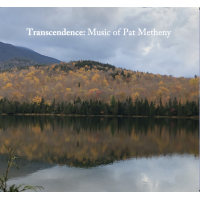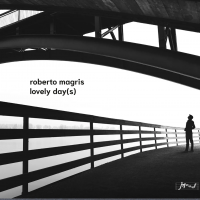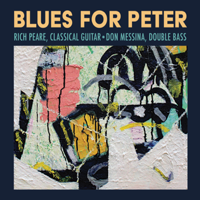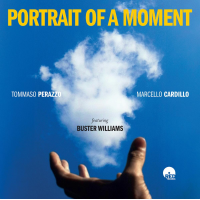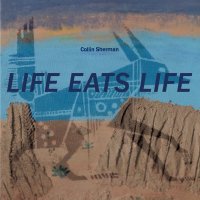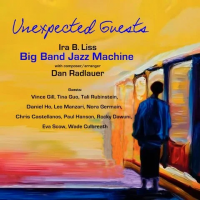Home » Jazz Articles » Album Review » John Escreet: Don't Fight the Inevitable
John Escreet: Don't Fight the Inevitable

Chris Potter
saxophone, tenorb.1971

Seamus Blake
saxophoneb.1970

David Binney
saxophone, altob.1961

Alan Ferber
trombone
Recorded after a European tour, Don't Fight the Inevitable finds Escreet and his group—the only change being drummer 
Nasheet Waits
drums
b.1971
Tyshawn Sorey
drums
b.1980
Muhal Richard Abrams
piano
1930 - 2017
Charlie Parker
saxophone, alto
1920 - 1955
The tradition is deeply rooted here, though certainly far distanced from the mainstream as Escreet combines particularly challenging charts with generous egalitarian free play. Don't Fight the Inevitable is a demanding listen, but one that rewards focused attention. Escreet's music occupies a dark space, with Binney and trumpeter 
Ambrose Akinmusire
trumpet
b.1982
Matt Brewer
bass
b.1983
Cecil Taylor
piano
1929 - 2018
The saxophonist also adds some spare electronics to the mix. An irregular-metered pulse drives the serpentine melody of "Civilization on Trial," ultimately turning even more rhythmically charged, filled with sharp horn bursts and dramatic shifts in feel. Unfettered solos from Binney and Escreet—whose consequential lines are permeated with chordal tremolos which burst into brief moments of pure liberation—lead to a final section sampled, processed and fed back by Binney as a gradually diminishing fade-out.
Despite its unmistakably cerebral nature, there's no shortage of passion running through this hour-long set. Intrinsic virtuosity abounds, but it's more about the collective, as the quintet moves seamlessly from stark passages of great import to potent landscapes of angular extremes. Capitalizing even further on his group's chemistry and capacity for both detailed arrangement and in-the-moment spontaneity, Don't Fight the Inevitable is that rare sophomore disc that easily surpasses its predecessor.
Track Listing
Civilization on Trial; Don't Fight the Inevitable; Soundscape; Magic Chemical (For the Future); Charlie in the Parker; Trouble and Activity; Gone But Not Forgotten; Avaricious World.
Personnel
John Escreet
pianoJohn Escreet: piano; David Binney: alto saxophone, electronics; Ambrose Akinmusire: trumpet; Matt Brewer: double-bass; Nasheet Waits: drums.
Album information
Title: Don't Fight the Inevitable | Year Released: 2010 | Record Label: Mythology Records
Tags
Comments
PREVIOUS / NEXT
Support All About Jazz
 All About Jazz has been a pillar of jazz since 1995, championing it as an art form and, more importantly, supporting the musicians who make it. Our enduring commitment has made "AAJ" one of the most culturally important websites of its kind, read by hundreds of thousands of fans, musicians and industry figures every month.
All About Jazz has been a pillar of jazz since 1995, championing it as an art form and, more importantly, supporting the musicians who make it. Our enduring commitment has made "AAJ" one of the most culturally important websites of its kind, read by hundreds of thousands of fans, musicians and industry figures every month.






 Buy Now
Buy Now



